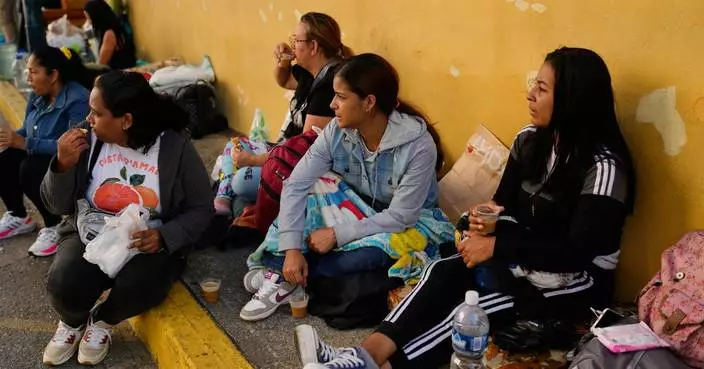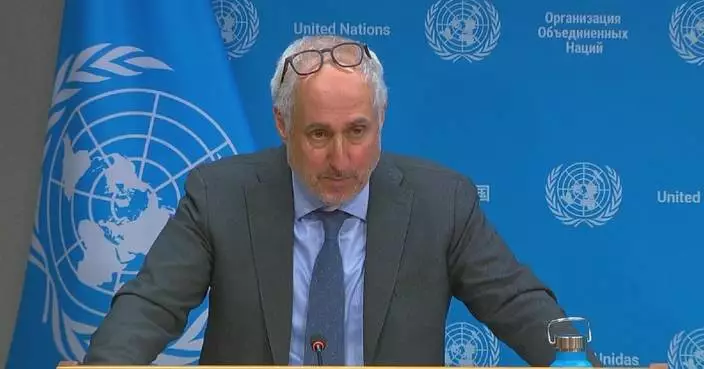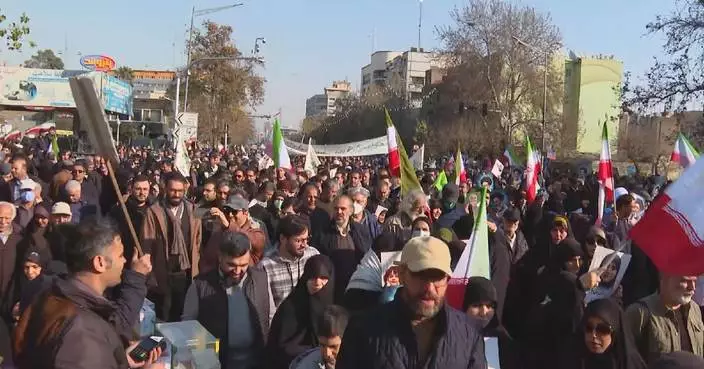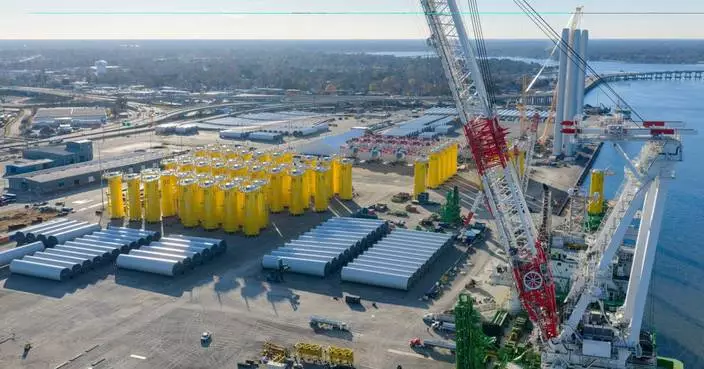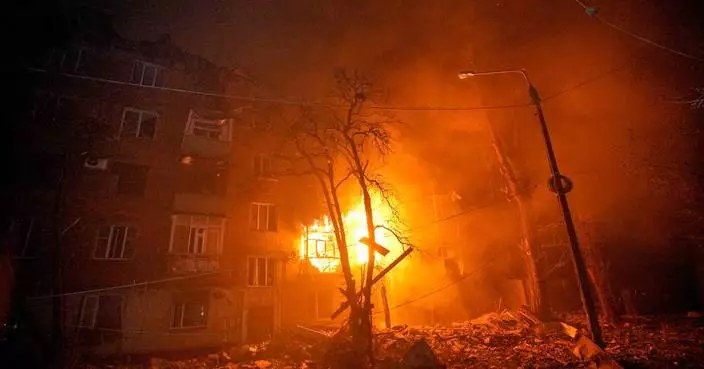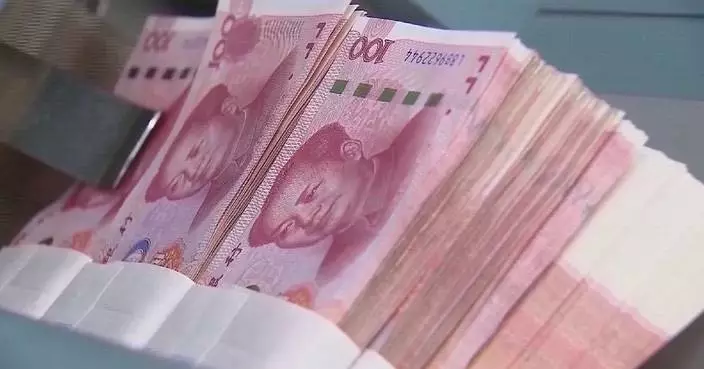Feature · News

Tensions escalate as IDF operations continue in Gaza, West Bank

China-EU agreement on price undertaking guidance for EV exports to stabilize supply chains: analyst
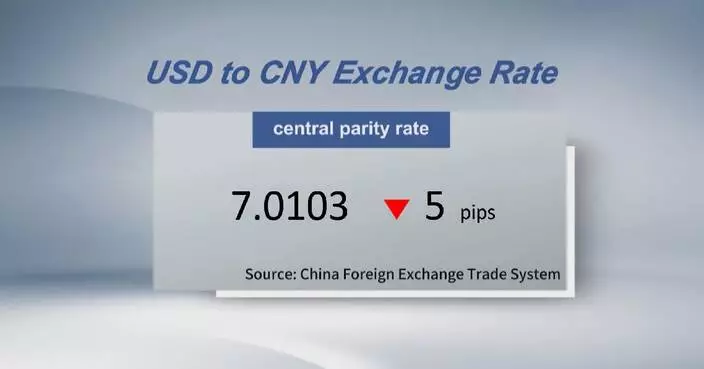
Chinese yuan strengthens to 7.0103 against USD Tuesday

Commercial recoverable spacecraft completes suborbital test flight in China

HK Express Soars as World's Safest Budget Airline Again

China welcomes foreign enterprises, long-term capital to continue expanding investment in China: vice premier
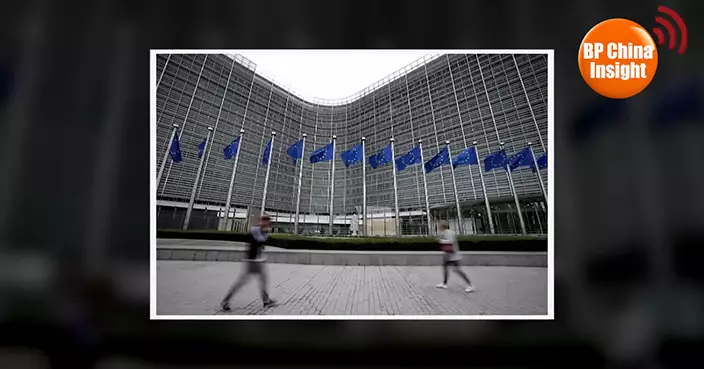
BP China Insight : Trump's Actions Have Turned the EU into an Outdated Relic of History

BP China Insight : Beijing Strikes Back at Meta's "Grab Tech and Talent" Acquisition
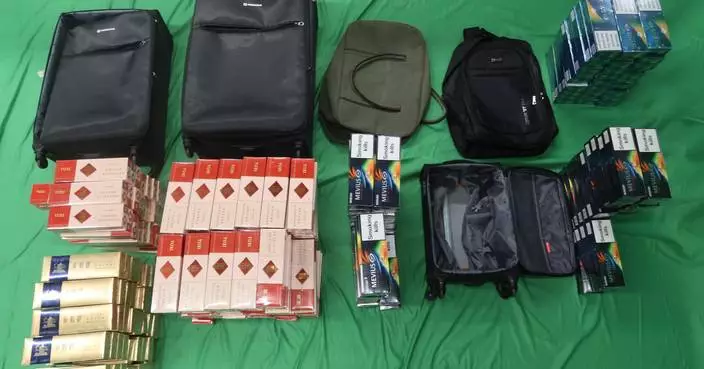
Man Sentenced to Six Months for Smuggling $258,300 in Duty-Not-Paid Cigarettes at Hong Kong Airport

Gold, silver prices climb to record highs on Monday
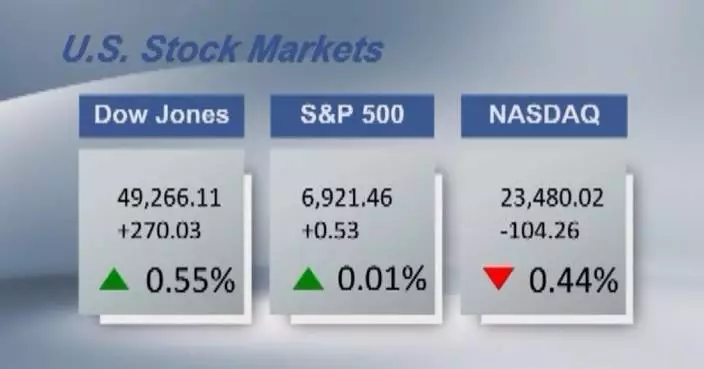
U.S. stocks close higher amid criminal probe into Fed chair Powell

DOJ investigation of Fed Chair Powell sparks backlash, support for Fed independence

Pentagon is embracing Musk's Grok AI chatbot as it draws global outcry
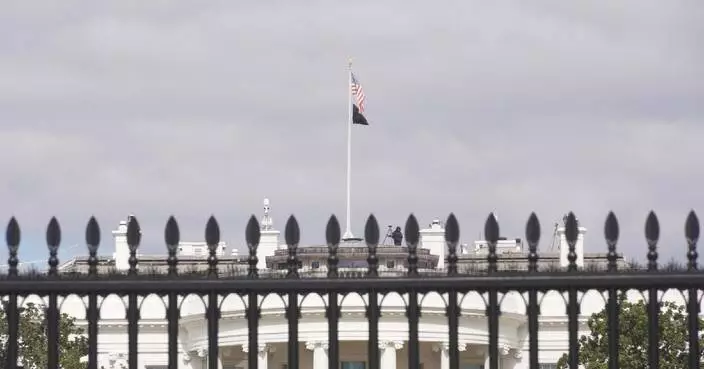
US warplanes increase activity at Al Udeid Air Base in Qatar while US citizens urged to leave Iran

Russia reports strikes on Ukrainian energy, transportation facilities; Ukraine claims repelling Russian attacks

Minnesota, Illinois sue Trump administration over surge of federal immigration enforcement

BP China Insight : Trump's Actions Have Turned the EU into an Outdated Relic of History

BP China Insight : Beijing Strikes Back at Meta's "Grab Tech and Talent" Acquisition

Man Sentenced to Six Months for Smuggling $258,300 in Duty-Not-Paid Cigarettes at Hong Kong Airport
Gold, silver prices climb to record highs on Monday
Tensions escalate as IDF operations continue in Gaza, West Bank
China-EU agreement on price undertaking guidance for EV exports to stabilize supply chains: analyst
Chinese yuan strengthens to 7.0103 against USD Tuesday
Commercial recoverable spacecraft completes suborbital test flight in China

HK Express Soars as World's Safest Budget Airline Again
China welcomes foreign enterprises, long-term capital to continue expanding investment in China: vice premier
U.S. stocks close higher amid criminal probe into Fed chair Powell

DOJ investigation of Fed Chair Powell sparks backlash, support for Fed independence

Pentagon is embracing Musk's Grok AI chatbot as it draws global outcry
US warplanes increase activity at Al Udeid Air Base in Qatar while US citizens urged to leave Iran
Russia reports strikes on Ukrainian energy, transportation facilities; Ukraine claims repelling Russian attacks
Minnesota, Illinois sue Trump administration over surge of federal immigration enforcement
Feature·Bloggers

【Deep Blue】International Laws? You Kidding Me?

【Bastille Commentary】Chicken-hearted Conservatives: Sanctioning Hong Kong Judges While Trump Runs Wild

【What Say You?】Trump’s “Maduro Grab” Gets a Glossy Spin by the Usual Suspects

【What Say You?】Trump's Judicial Theater: Maduro's Fate Already Sealed

【Deep Throat】Trump's Venezuelan Oil Grab: Big Oil Not Playing Along?

The Most Laughable Lie of the New Year: Jimmy Lai's "Grave Illness" Falls Apart Under Five Hard Facts

The Latest: Iran eases some communications restrictions as activists say death toll spikes to 2,000
- Wall Street hangs near its records as JPMorgan Chase and Delta Air Lines kick off earnings season
- Tensions flare in Minnesota as protesters and federal agents repeatedly square off
- Inflation cooled slightly in December though it remains above Fed's target
- The Latest: Trump to visit a Ford factory and promote manufacturing in Detroit
- Microsoft's Brad Smith pushes Big Tech to 'pay our way' for AI data centers amid rising opposition
- Death toll from nationwide protests in Iran spikes to at least 2,000, activists say
- South Korean prosecutor seeks death sentence for ex-leader Yoon over martial law decree
- Uganda's military deployed in national capital before presidential election
- Reliance Matrix Elevates Customer Experience Strategy with Leadership Appointment

Iranians in Türkiye return home, fearing for their families amid unrest in Iran
- Iranians in China hope for quick resolution to unrest, urge against foreign interference
- Heavy snowfall blankets Serbia, disrupting power supply, transportation
- China's new trade-in program sparks consumption boom
- Economy remains primary issue as presidential election draws close in Uganda
- US, Iran must rebuild trust before diplomacy can succeed: expert
- China extends anti-dumping tariffs on solar-grade polysilicon imports from US, ROK
- World’s largest-diameter boring machine put into use for Yangtze River railway tunnel
- Nigeria petrol price cuts ease living costs, raise durability concerns
- Chicago expands housing supply to ease affordability pressure

"The corridor to the future runs through the UAE": Abu Dhabi powering the AI era with molecules, gigawatts and partnership
- Infortrend Launches Edge AI Server, Bringing AI to The Edge Without Complex Setup
- Top central bankers express 'full solidarity' with Fed Chair Powell in clash with Trump
- Russia launches another major strike on Ukraine's power grid in freezing temperatures
- DXC Strengthens Alliance with SAP as a RISE with SAP Validated Partner
- Tineco's Modern Living Vision Earns Global Media Recognition at CES 2026
- Twins Appear at HEYTEA K11 ART MALL Hong Kong to Co-Create Limited-Edition Beverage "Black Truffle Scrambled Eggs Milk Tea"
- P2P.org Appoints Betsabe Botaitis as Chief Financial Officer
- Mars names new Global Petcare President
- YY Group Holding Strengthens Organizational Foundation with New Group-Level Learning & Organizational Development Function

Malaysia will take legal action against Musk's X and xAI over misuse of Grok chatbot
- NYC nurses strike enters second day as hospitals move to fill labor gaps
- Apple calls on Google to help smarten up Siri and bring other AI features to the iPhone
- Meta names former Trump adviser Dina Powell McCormick as president and vice chairman
- Malaysia and Indonesia become the first countries to block Musk’s Grok over sexualized AI images
- Google teams up with Walmart and other retailers to enable shopping within Gemini AI chatbot
- VR headsets are 'hope machines' inside California prisons, offering escape and practical experience
- Doctors say changes to US vaccine recommendations are confusing parents and could harm kids
- Strength training is crucial after menopause. How to make the most of your workouts
- Meta lines up massive supply of nuclear power to energize AI data centers

The BBC seeks to dismiss Trump's $10B defamation lawsuit in a Florida court
- Hong Kong court moves closer to sentencing activist Jimmy Lai after hearing lighter penalty pleas
- Adelaide Writers Week canceled as 180 speakers withdraw after the exclusion of a Palestinian writer
- PBS weekend newscasts shut down due to funding cuts, replaced by single-topic programs
- 'Joe Dirt' tribute takes top prize in Pennsylvania Farm Show mullet contest
- Music honcho L.A. Reid settles with ex-recording executive who accused him of sexual assault
- Celebrities embrace black and old Hollywood glamour for Golden Globes red carpet
- Milan prison hosts concert with instruments made by inmates from migrant smugglers’ boats
- Celebrity birthdays for the week of Jan. 18-24 includes Mariska Hargitay and Dolly Parton
- Inside the Golden Globes: The reunions and moments the telecast didn't show

Supreme Court takes up culture war battle over transgender athletes in school sports
- Vrabel and Patriots bring confidence into divisional round after strong defensive performance
- Olympic snowboard medalist Ueli Kestenholz dies in Swiss avalanche at age 50
- How will climate change reshape the Winter Olympics? The list of possible host sites is shrinking
- Tottenham midfielder Bentancur has hamstring surgery in worry for Uruguay ahead of World Cup
- Trump travel ban leaves Senegal, Ivory Coast fans in limbo for World Cup
- It's been a predictably tough year for Indiana, even with Pascal Siakam playing like an All-Star
- Two more Russian athletes approved for Milan Cortina Olympics with neutral status
- Venus Williams loses in 1st round of Australian Open tuneup event in Hobart
- Gael Monfils loses in 1st round in Auckland in likely his farewell season

Court Dismisses Chow Hang Tung's Challenge to Hong Kong's Clothing Policy for Persons in Custody
- AFCD Cracks Down on Fraudulent Sales at FarmFest 2026, Considers Permanent Ban for Violators.
- Hong Kong and Mainland China Strengthen Healthcare Collaboration with New Agreements on Chinese Medicine and Cancer Prevention.
- Severe pediatric influenza case prompts urgent vaccination reminder from health authorities.
- New 468 Employment Rule Enhances Part-Timer Rights, Effective January 18, Says Labour Secretary Chris Sun.
- SWD Celebrates Outstanding Carers at Hong Kong's Care the Carers Campaign Ceremony
- Hospital Authority Launches Phase II of Community Health Training Project with National Health Commission and Chow Tai Fook Foundation.
- Fire Services Inspect Buildings for Safety Violations, Issuing 32 Notices and One Prosecution Amid Public Concern.
- Go! Illustrators Finale Celebrates Emerging Hong Kong Picture Book Talent at International Book Fair
- Hong Kong Releases January Gravidtrap Indexes for Aedes Albopictus, Most Areas Report 0% Infestation.

Turpan City in Xinjiang hit by continuous heavy fog
- Traditional treatments, advanced equipment on China's navy hospital ship wow Brazilian visitors
- Cold wave triggers temperature dips, snowfall in northwest China's Xinjiang
- AI tennis robot serves as perfect practice partner for players in Shenzhen
- Chinese shares close lower Tuesday with record single-day A-share trading turnover
- Former Fed chairs, US officials decry criminal probe against Jerome Powell
- Innovative technology breathes new life into centuries-old winter fishing tradition in northeast China's Jilin
- Restaurants in Ningbo see surge in bookings for Chinese New Year's Eve dinners
- China's State Grid's inter-provincial electricity transactions hit record-high in 2025
- Japanese civil group shows opposition to government's military expansion
Category · News

The Latest: Iran eases some communications restrictions as activists say death toll spikes to 2,000
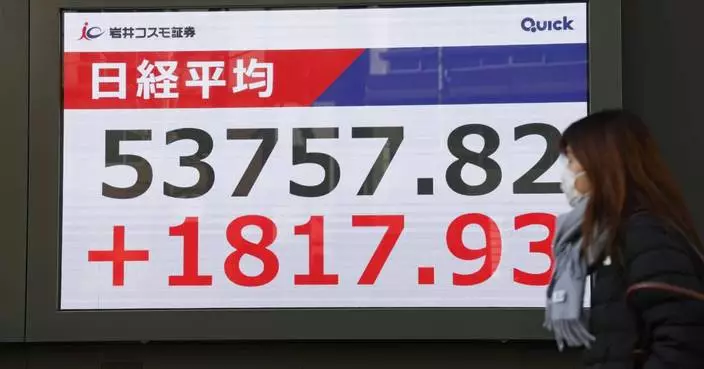
Wall Street hangs near its records as JPMorgan Chase and Delta Air Lines kick off earnings season

Tensions flare in Minnesota as protesters and federal agents repeatedly square off
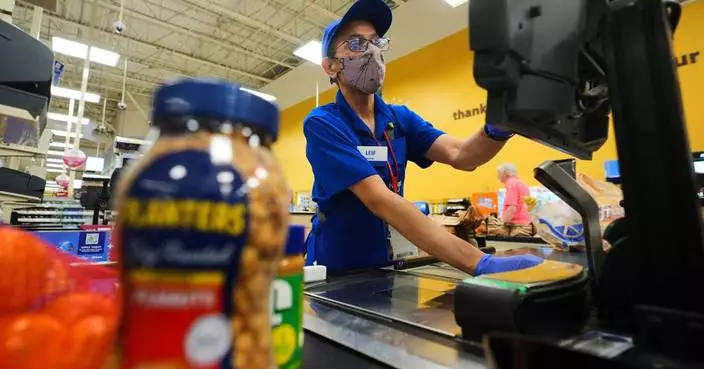
Inflation cooled slightly in December though it remains above Fed's target

The Latest: Trump to visit a Ford factory and promote manufacturing in Detroit

Microsoft's Brad Smith pushes Big Tech to 'pay our way' for AI data centers amid rising opposition

Death toll from nationwide protests in Iran spikes to at least 2,000, activists say

South Korean prosecutor seeks death sentence for ex-leader Yoon over martial law decree

Uganda's military deployed in national capital before presidential election

Reliance Matrix Elevates Customer Experience Strategy with Leadership Appointment

Supreme Court takes up culture war battle over transgender athletes in school sports
Iranians in Türkiye return home, fearing for their families amid unrest in Iran

"The corridor to the future runs through the UAE": Abu Dhabi powering the AI era with molecules, gigawatts and partnership

9.4 Million in Savings: TRUMPF and JAGGAER Report Results

Lumivero Acquires SharpCloud, Empowering Enterprises to Make Smarter, Faster Business Decisions

Infortrend Launches Edge AI Server, Bringing AI to The Edge Without Complex Setup

Top central bankers express 'full solidarity' with Fed Chair Powell in clash with Trump
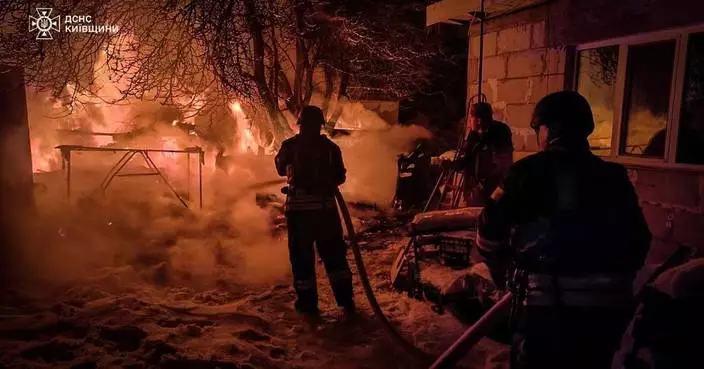
Russia launches another major strike on Ukraine's power grid in freezing temperatures
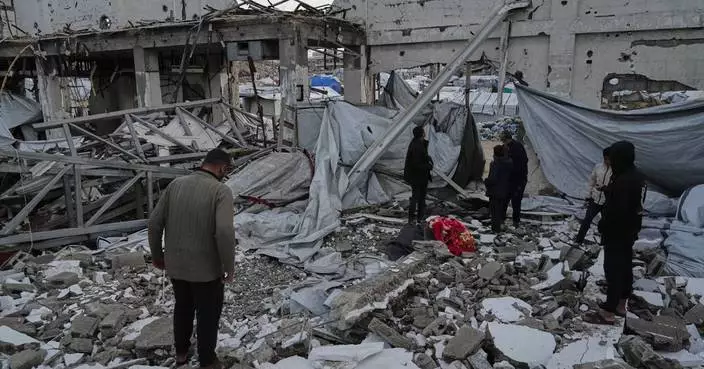
Howling winds collapse walls on Gaza tent camps, killing 4. A 1-year-old boy dies of hypothermia

Vrabel and Patriots bring confidence into divisional round after strong defensive performance

EverDriven Appoints Michael Signer as Chief Policy and Legal Officer to Advance Safe, Equitable Access to Education

GlobalLogic Appoints LuJean Smith as Chief Marketing Officer

John Pearce, Former Associate Chief Justice of the Utah Supreme Court, Rejoins Wilson Sonsini

Gen X vs. Millennial Parents: New USAA Data Reveals Differences in Early Financial Behaviors for Gen Alpha

Marine Le Pen's appeal trial opens in Paris, with far-right leader's 2027 presidential bid at stake

DXC Strengthens Alliance with SAP as a RISE with SAP Validated Partner
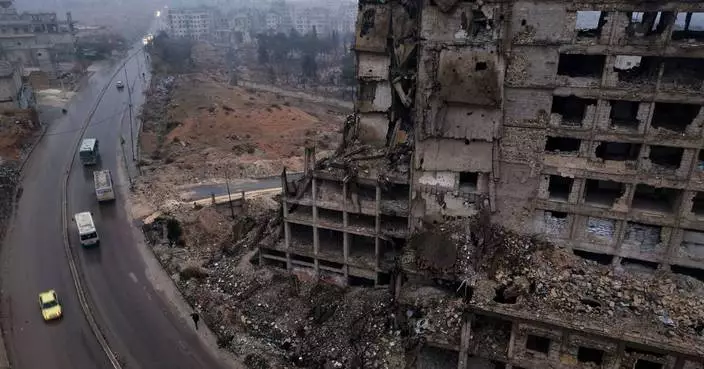
Syrian army declares a closed military zone east of Aleppo as tensions rise with Kurds

Tineco's Modern Living Vision Earns Global Media Recognition at CES 2026

Conduent Launches AI Experience Center to Showcase AI & GenAI-Powered Solutions for Commercial, Transportation and Government Clients

Court Dismisses Chow Hang Tung's Challenge to Hong Kong's Clothing Policy for Persons in Custody

Twins Appear at HEYTEA K11 ART MALL Hong Kong to Co-Create Limited-Edition Beverage "Black Truffle Scrambled Eggs Milk Tea"
Iranians in China hope for quick resolution to unrest, urge against foreign interference

Senseair launches next-generation CO2 sensor featuring 75% smaller size and SMD-solderability for demand-controlled HVAC systems
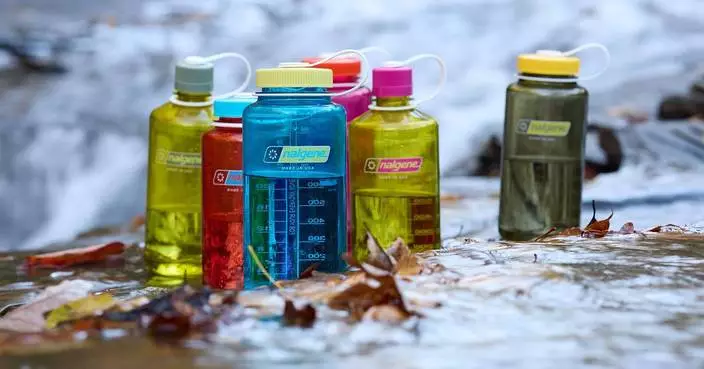
Nalgene Outdoor Unveils Thrill & Motion: A High-Energy Color Collection for 2026

Trump administration labels 3 Muslim Brotherhood branches as terrorist organizations
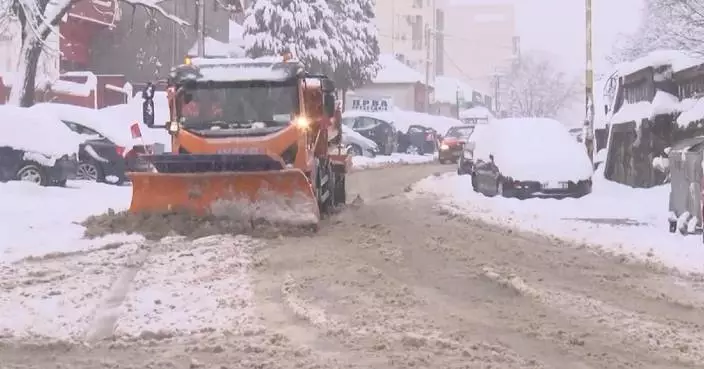
Heavy snowfall blankets Serbia, disrupting power supply, transportation

P2P.org Appoints Betsabe Botaitis as Chief Financial Officer
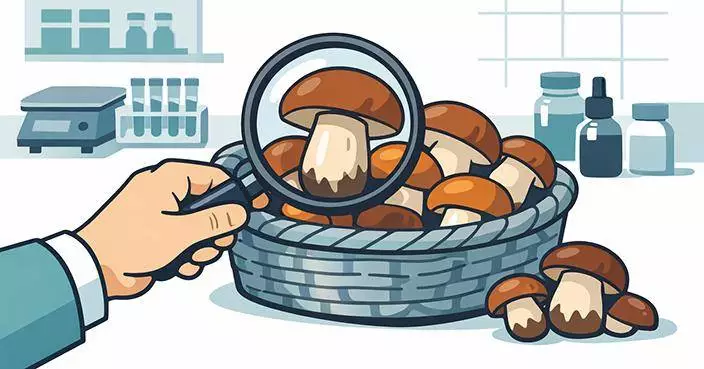
AFCD Cracks Down on Fraudulent Sales at FarmFest 2026, Considers Permanent Ban for Violators.

Curtiss-Wright and Green Hills Software Introduce High-Performance COTS Solution for Safety-Critical Avionics Systems

MATERIAL Unleashes Formless Energy, Defying the Laws of Industrial Gravity

Kincell Bio Advances Key Leaders to Accelerate Innovations for Reliable, High Quality Patient Supply in Cell Therapy Manufacturing

Mars names new Global Petcare President

YY Group Holding Strengthens Organizational Foundation with New Group-Level Learning & Organizational Development Function

Meet Insta360 Link 2 Pro & Link 2C Pro: AI 4K Webcams for Professional-Grade Video and Audio

Hong Kong and Mainland China Strengthen Healthcare Collaboration with New Agreements on Chinese Medicine and Cancer Prevention.

Severe pediatric influenza case prompts urgent vaccination reminder from health authorities.

Olympic snowboard medalist Ueli Kestenholz dies in Swiss avalanche at age 50
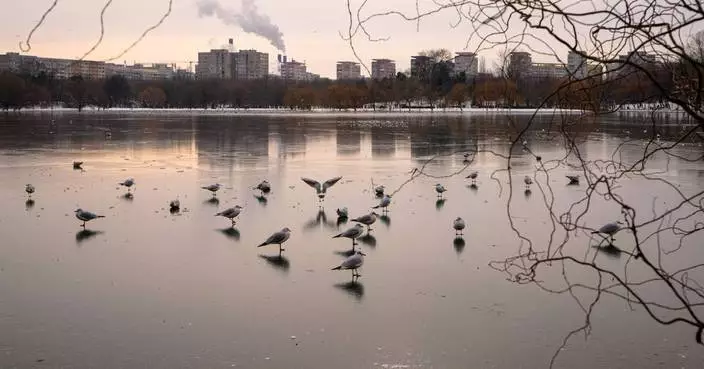
Freezing rain and ice disrupt travel across central and eastern Europe
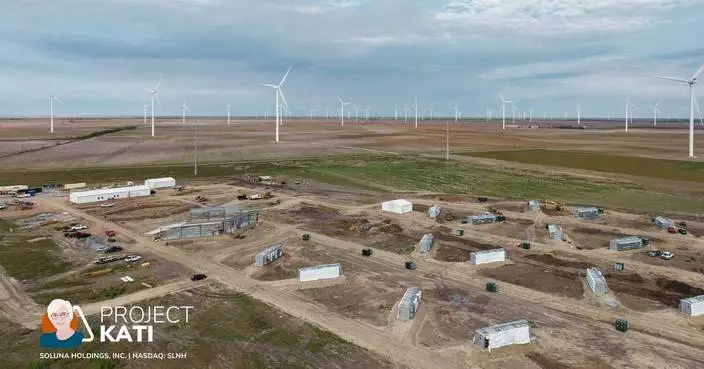
Soluna Announces Monthly Business Update
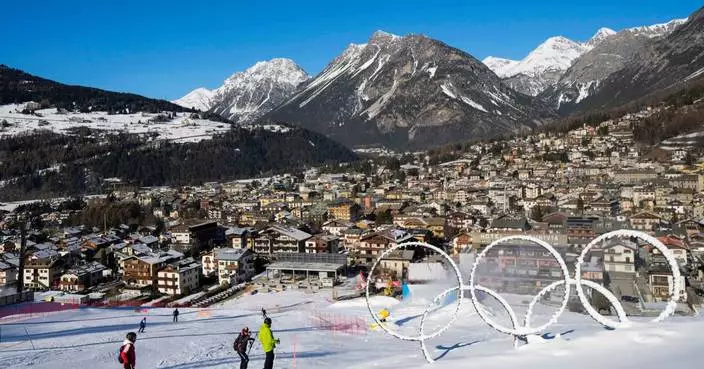
How will climate change reshape the Winter Olympics? The list of possible host sites is shrinking

Tottenham midfielder Bentancur has hamstring surgery in worry for Uruguay ahead of World Cup

Adair & Company Appoints Kim Killian as Chief Revenue Officer to Scale Client Impact Nationwide

Blackline Safety Introduces G8—The Most Connected Safety Wearable Ever Made
China's new trade-in program sparks consumption boom
Economy remains primary issue as presidential election draws close in Uganda

Americhem to Spotlight New Materials Addressing PFAS, Traceability, and Performance Demands in Medical Devices at Pharmapack and MD&M West 2026
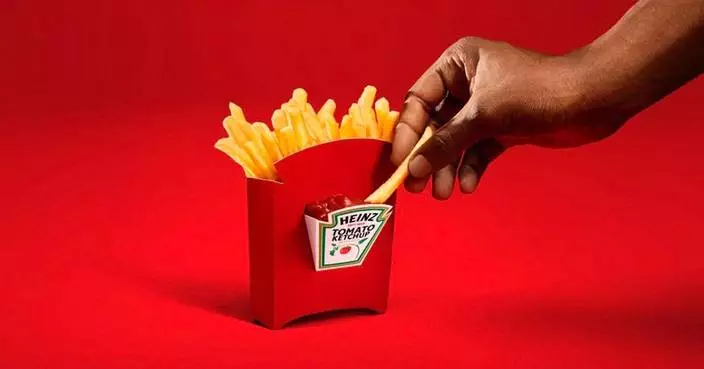
HEINZ Unveils the First Fry Box with a Built-In Condiment Compartment in Eleven Countries Across the Globe

Dollar Tree Appoints Daniel Delrosario as Senior Vice President of Investor Relations and Treasurer

Bellroy Releases Year of the Horse Capsule Collection

KGI: 2026 Global Market Outlook

The BBC seeks to dismiss Trump's $10B defamation lawsuit in a Florida court

New 468 Employment Rule Enhances Part-Timer Rights, Effective January 18, Says Labour Secretary Chris Sun.

BBSB International Limited Trading Debut Closed at HK$0.67 Per Share

SWD Celebrates Outstanding Carers at Hong Kong's Care the Carers Campaign Ceremony

Hospital Authority Launches Phase II of Community Health Training Project with National Health Commission and Chow Tai Fook Foundation.

Malaysia will take legal action against Musk's X and xAI over misuse of Grok chatbot
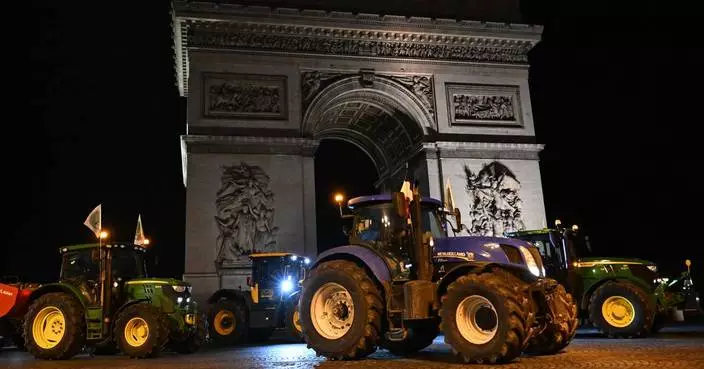
French farmers drive 350 tractors to Parliament to protest low incomes and EU trade deal

NYC nurses strike enters second day as hospitals move to fill labor gaps

Trump will visit a Ford factory and promote manufacturing in Detroit

Robotin R2 Pro Sweeps "Best of CES" Awards; Heralds a New Era in 150-Year History of Carpet Washing

Trump travel ban leaves Senegal, Ivory Coast fans in limbo for World Cup

Experian’s New Fraud Forecast Warns Agentic AI, Deepfake Job Candidates and Cyber Break-Ins Are Top Threats for 2026

Apprise by Walker & Dunlop Names Nelson Pratt to Lead Expanded HUD/FHA Multifamily Valuation Capabilities

Wisconsin Gov. Evers casts doubt on his lieutenant governor's ICE proposal

Gov. Tony Evers urges the Wisconsin Legislature to act on his key priorities in his final year

It's been a predictably tough year for Indiana, even with Pascal Siakam playing like an All-Star

NETSCOUT Receives Frost & Sullivan's 2025 Global Company of the Year Recognition for Network Monitoring Leadership

Fire Services Inspect Buildings for Safety Violations, Issuing 32 Notices and One Prosecution Amid Public Concern.

Go! Illustrators Finale Celebrates Emerging Hong Kong Picture Book Talent at International Book Fair
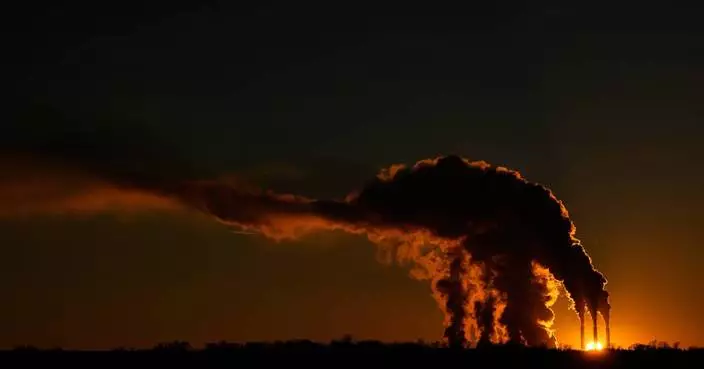
US carbon pollution rose in 2025. Experts blame cold winter, high natural gas prices, data centers

ROE Visual Celebrates 20 Years of Pioneering LED Technology
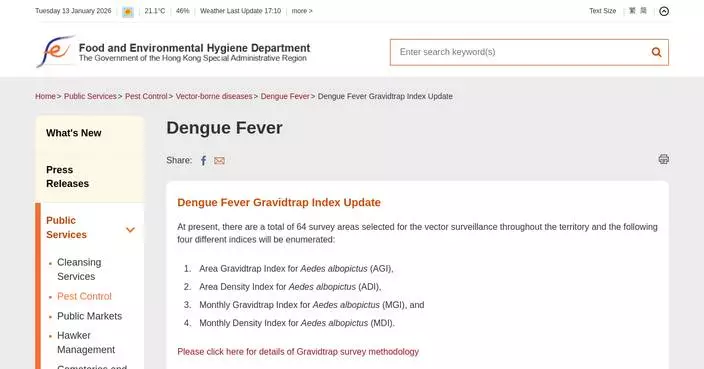
Hong Kong Releases January Gravidtrap Indexes for Aedes Albopictus, Most Areas Report 0% Infestation.

Ant International Powered Over 2 Billion Transactions in its Core Emerging Markets in 2025, Expanding AI Payments and Digital Commerce Tools for Inclusive Growth

Hong Kong court moves closer to sentencing activist Jimmy Lai after hearing lighter penalty pleas



